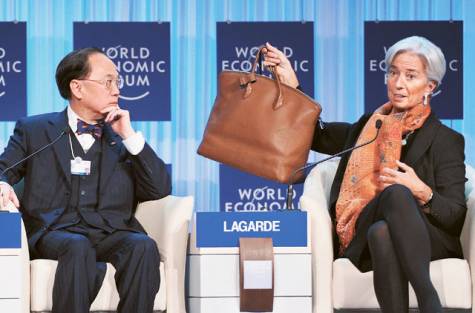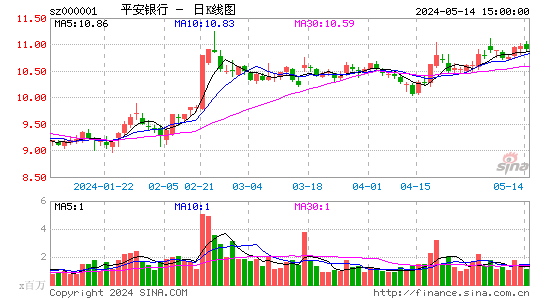我
们都希望事业蒸蒸日上,但你的上司会希望你这样吗?
松下电器印度公司(Panasonic India Pvt)的人力资源与集团事务总监普拉山特•德奥•辛格(Prashant Deo Singh)说,不一定。
辛格说,许多管理者都对工作没有安全感,因此他们不愿让下属表现抢眼。相反,他们可能会抢员工的功劳。如果有可能,这种管理者还会避免雇佣他们认为可能取代他们的人。
他说,“这是管理者犯的最严重的错误之一。”
在与《华尔街日报》“印度实时报”栏目记者的交谈中,辛格谈了与这种管理者相处的窍门,以及顺利应聘松下公司的要诀。下面是经过编辑的对话节选。
《华尔街日报》:管理者们最常犯的错误是什么?
辛格:许多管理者都有控制欲。这是打击员工积极性的重要原因。管理者需要知道,人们讨厌被控制。

Panasonic India
松下电器印度公司的人力资源与集团事务总监普拉山特•德奥•辛格
我们也看到过许多没有安全感的管理者。他们往往会匿藏信息,不让下属的工作得到公司的承认。他们可能给团队成员指派较少的工作,或者不对他们的培训进行投入。
这种上司可能更喜欢不会挑战其权威的员工。他们甚至会由于担心员工取代他们,而不雇佣比他们聪明的人。
这些就是管理者们可能会犯的严重错误。
此外,有些管理者并不在意员工的需求,可能还会羞辱他们,这是不对的。人都应该得到尊重。
《华尔街日报》:那么,员工该如何与没有安全感的上司相处呢?
辛格:首先,应该直面你的上司,指出他对你不公平的地方。比方说,如果上司没有给你充足的机会,或者抢了你的功劳,你应该说出来。
如果可能,在你的上司的上级在场的会议或论坛上努力展现你的工作。
如果这不管用,那么可以考虑向你上司的上司报告他的行为。
不过,当你评价上司时要公正。不要仅凭一两件事就做出判断。
如果你真的认为你的上司妨碍了你的事业发展,那么作为最后一招,你可以考虑换工作。
《华尔街日报》:好上司应该是什么样的?
辛格:好上司是能够激励员工,给他们空间并信任他们的人。
好上司会根据员工需求变换管理风格。年轻员工可能需要手把手地教,而资深团队成员则需要自主权。
此外,好的管理者会给员工提供实现期望业绩所需的工具和指导。管理者需要关心团队成员并确保他们的事业有进步。
而且,与员工建立私人关系也很重要。
《华尔街日报》:转换一下话题,全球经济衰退对贵公司的招聘计划有何影响?2012年消费品行业的招聘前景如何?
辛格:从全球看,由于全球经济环境的变化,松下公司进行了一些裁员,但印度分公司没有受到影响。
我们已经实现了2011年招聘600位销售、市场营销和制造部门员工的目标。
我们在印度的销售收入正在增长,而且我们正在通过开设新的分公司和新商店进行积极投资。
从长远角度看,松下印度也计划进入太阳能和环境相关业务领域,这会创造新的工作机会。
从整个消费品行业来看,2012年不会有积极的招聘动作,因为各家公司现在都很关注成本。
《华尔街日报》:在面试中,你最看重应聘者的哪两点?
辛格:第一,应聘者的眼光是否能超越个人利益。我们寻找的是能进行团队合作、而不会太以自我为中心的人。
尽管雄心很重要,但野心太大、太贪心也是有害的。
我们更关注情商和工作经验,而不是智商。高智商的人往往很追求物质。
我们希望员工不仅是好的执行者,还同样擅长人际交往。
第二,我们要招聘的是不仅能完成眼前工作、还能胜任长远发展的人。我们根据应聘者是否适合担任5-10年后的公司工作来评价他们。我们会自问,“如果这个人对市值10亿美元的公司来说很合适,那么他对市值20亿美元的公司来说合适吗?”
《华尔街日报》:你最讨厌应聘者哪一点?
辛格:傲慢、自负、没有耐心。我们不需要寻找成功捷径的人。
我最近面试过一位优秀的大学生,他说他希望成为一位“高净值”的人。显然,这是一个傲慢的回答。
这与我们谦恭礼让的指导原则不符。
《华尔街日报》:你们招聘员工的途径有哪些?
辛格:我们70%的招聘是通过员工推荐进行的。还有15%是通过职场顾问,剩下的则是通过校园招聘和专业求职网站进行的。
我们的员工中,一半是研究生以上学历,其中的管理学研究生被分进了销售部门和市场营销部门。
Nikita Garia (本文版权归道琼斯公司所有,未经许可不得翻译或转载。)
All of us want to move up in our careers, but does your boss want that for you?
Not necessarily, says Prashant Deo Singh, head of human resources and group affairs at electronics major Panasonic India Pvt.
Mr. Singh says that many managers are insecure about their jobs, so they don't let their subordinates' shine. Instead, they might take credit for their employees' work, adds Mr. Singh. When possible, such managers avoid hiring people who they think could replace them.
'This is one of the most serious mistakes that people managers make,' he says.
In a conversation with India Real Time, Mr. Singh shares tips on how to deal with such managers, as well as pointers on being hired at Panasonic. Here are edited excerpts:
IRT: What are the common mistakes people managers make?
Mr. Singh: Many managers have a controlling mentality. This is a serious cause of de-motivation for employees. Managers need to know that people hate to be controlled.
Also, we see a lot of bosses who are insecure. They tend to hoard information and don't let their subordinates' work be recognized by the company. They may delegate less work to their team members or not invest in their training.
These bosses may favor employees who don't challenge their authority. They could go to the extent of not hiring people who are smarter than them on fears that the employee could replace them.
These are serious mistakes that people managers make.
Besides, some people managers may not be sensitive to their employees' needs and may humiliate them, which is not correct. A human being should be treated with respect.
IRT: So, how should an employee deal with an insecure boss?
Mr. Singh: First, confront your boss with ways in which he or she is not being fair to you. For instance, if the boss is not giving you ample opportunities or taking credit for your work, you should say so.
When possible, try and showcase your work in meetings or forums where your managers' superiors can see it.
If this doesn't work, consider reporting your manager's behavior to his or her boss.
However, be fair when you are evaluating your boss. Don't base your judgment on one or two incidents.
As a last resort you might consider switching your job, if you truly believe your manager is hampering your career growth.
IRT: What defines a good boss?
Mr. Singh: A good boss is one who can inspire employees, give them space and trusts them.
Good bosses tailor their management style depending on the employee's needs. A young recruit might need some hand-holding, while senior team members need to be given autonomy.
Moreover, a good manager provides employees the necessary tools and guidance to meet performance expectations. The manager needs to be caring and should ensure that the team member's career is progressing.
Also, it's important to connect with the employee at a personal level.
IRT: Switching gears, how has the global economic slowdown affected your hiring plans? What is the outlook for hiring in the consumer goods sector in 2012?
Mr. Singh: Globally, Panasonic has seen some layoffs due to changes in the global economy but the Indian arm was not affected.
We have been able to achieve our 2011 target of hiring 600 people in sales, marketing and manufacturing.
Our sales are growing in India, and we are investing aggressively by opening up new branches and new shops.
From a longer-term perspective, Panasonic India is also planning to enter the solar energy and environment-related businesses, which could create new jobs.
More broadly in the consumer goods industry, we won't see aggressive hiring in 2012 since companies are keeping a close eye on costs.
IRT: What are two things you look for in a candidate during a job interview?
Mr. Singh: The first thing is whether the person can look beyond his or her interest. We are looking for individuals who are team players and aren't too self-centered.
While ambition is important, over-ambition and greed are harmful.
We pay more attention to the emotional quotient and work experience instead of the intelligence quotient. People with high IQs tend to be materialistic.
We want people who are not just good performers but those who are equally high on people skills.
Secondly, we not only look to hire someone for an immediate role but also for the long term. We evaluate candidates on the basis of how they will fit in with the company five or 10 years from now. We ask ourselves: 'If this person is good for a $1 billion company, is he good for a $2 billion company?'
IRT: What annoys you most about a job candidate?
Mr. Singh: Arrogance, overconfidence and impatience. We are not looking for people who want shortcuts to success.
I interviewed a college topper recently who said that he wants to be a 'high net worth' individual. Obviously, that's an arrogant reply.
This does not match our guiding principles which are humility and courtesy.
IRT: What routes do you use for hiring?
Mr. Singh: 70% of our recruitment is done through employee referrals. Another 15% is through consultants and the remaining from campuses and professional networking websites.
Half of our workforce comprises management graduates who are into sales and marketing, and the rest are at least graduates.
Nikita Garia










